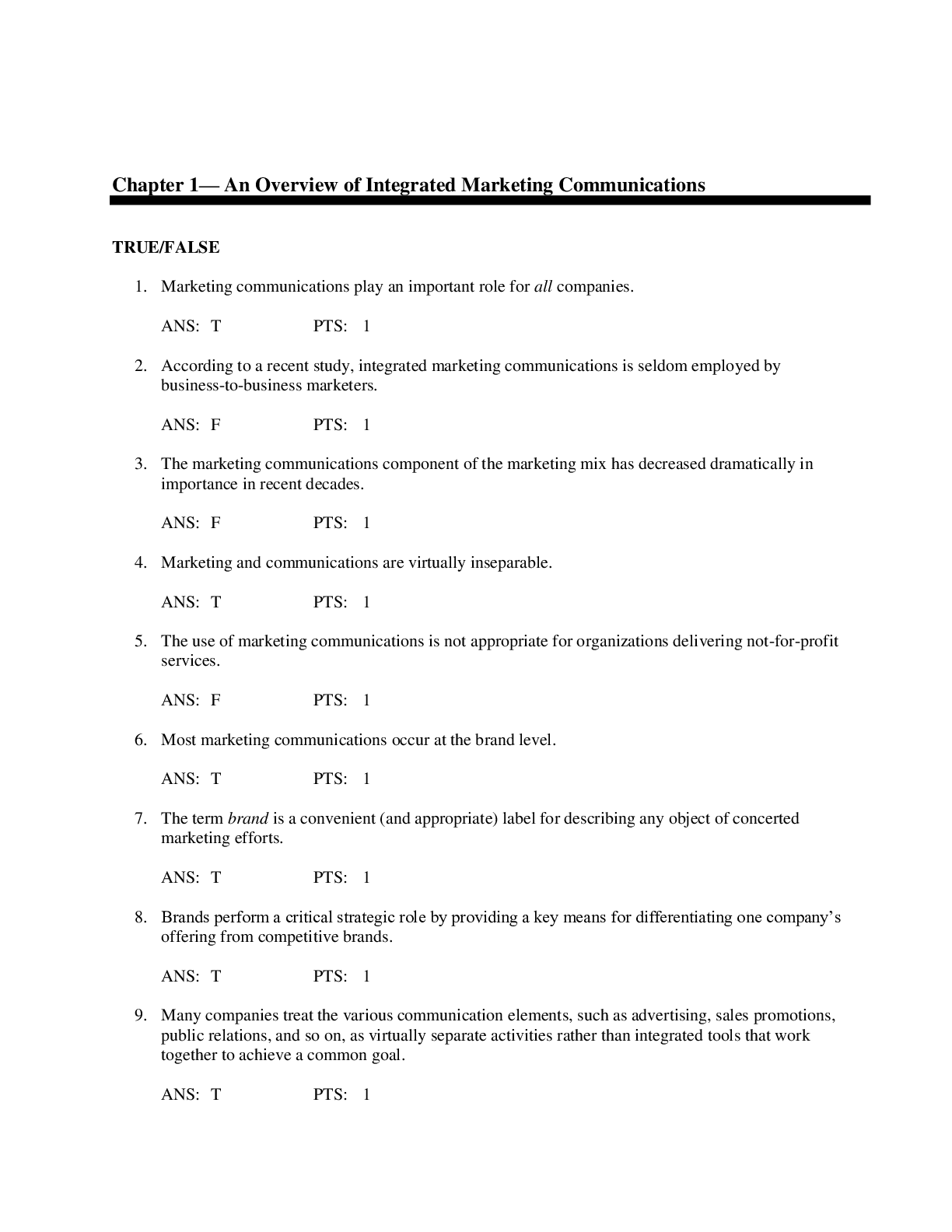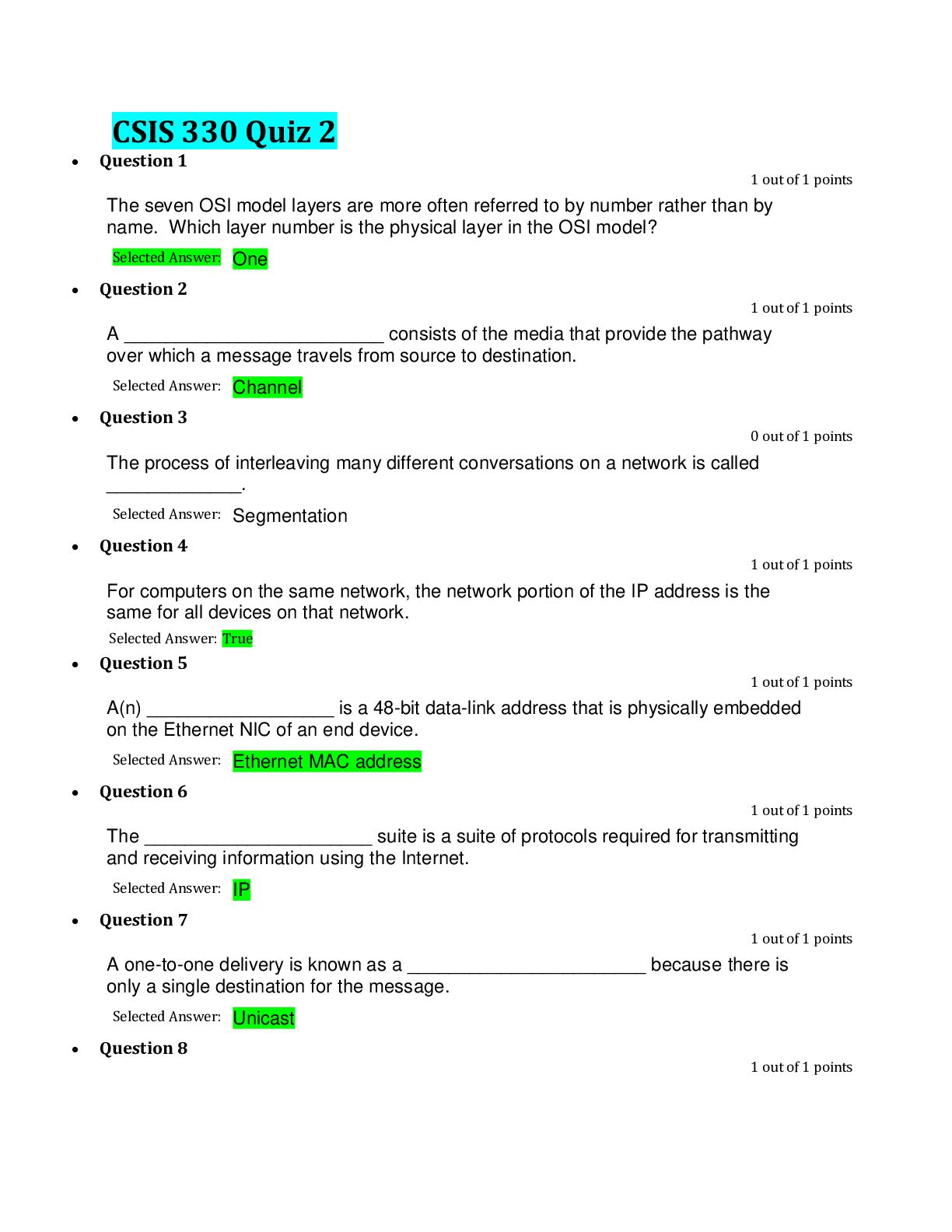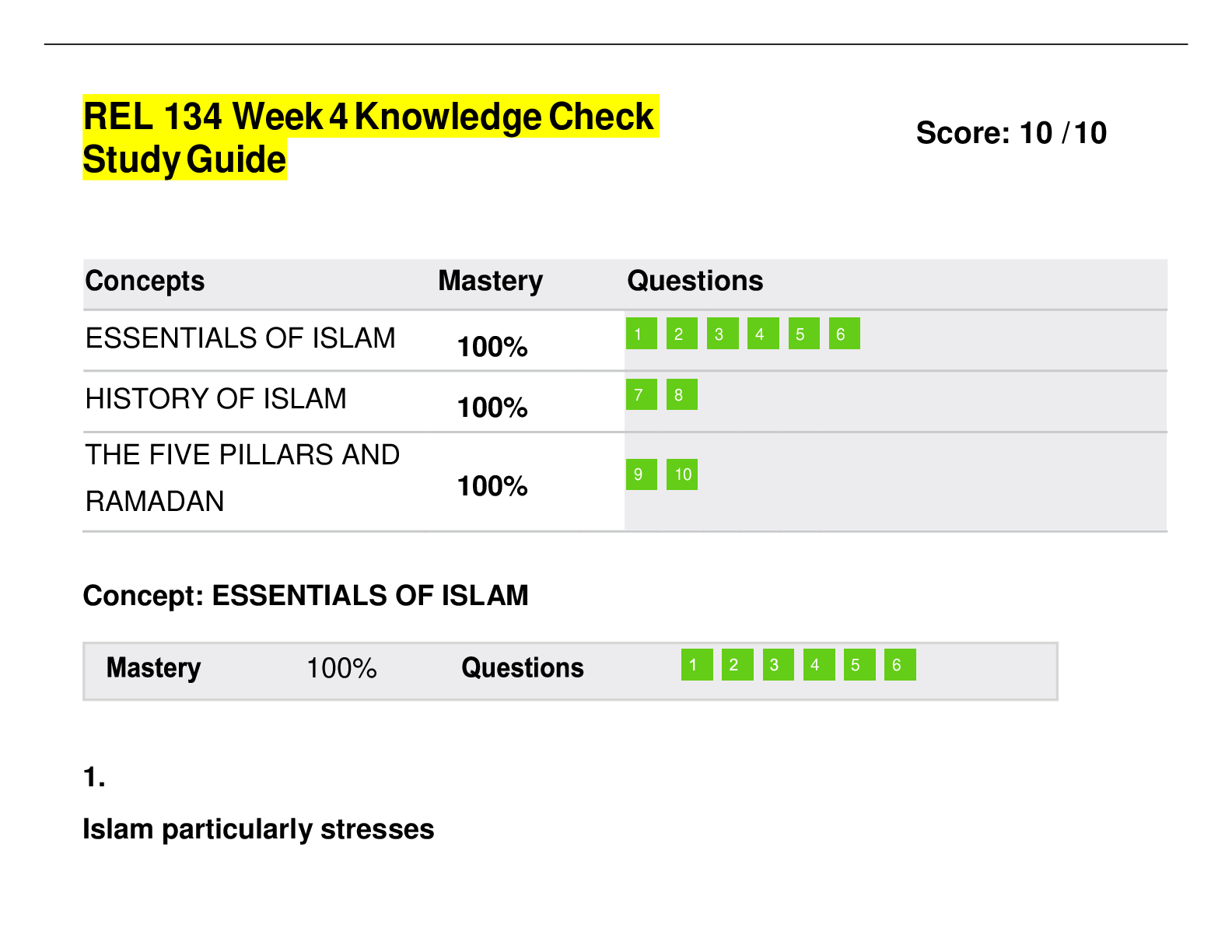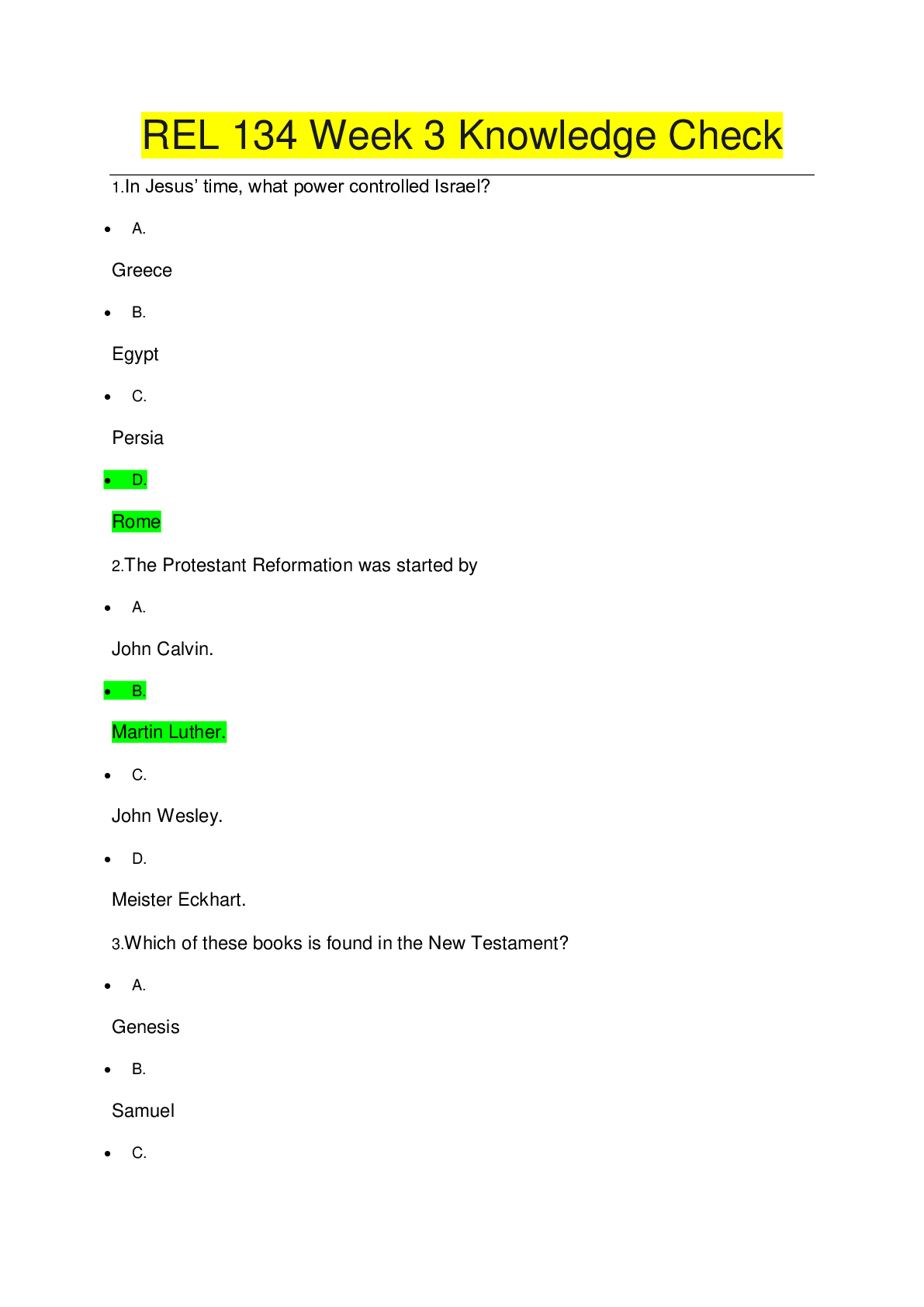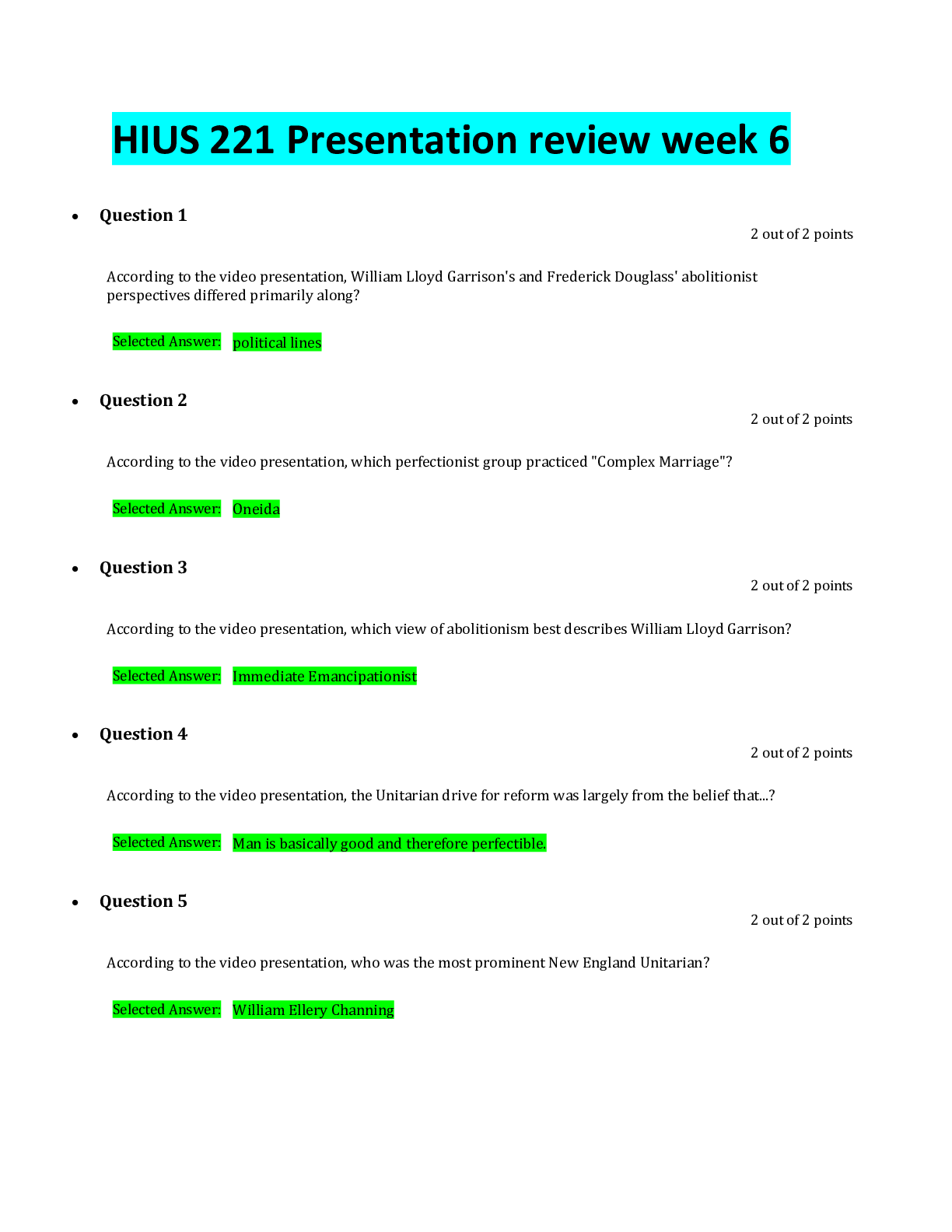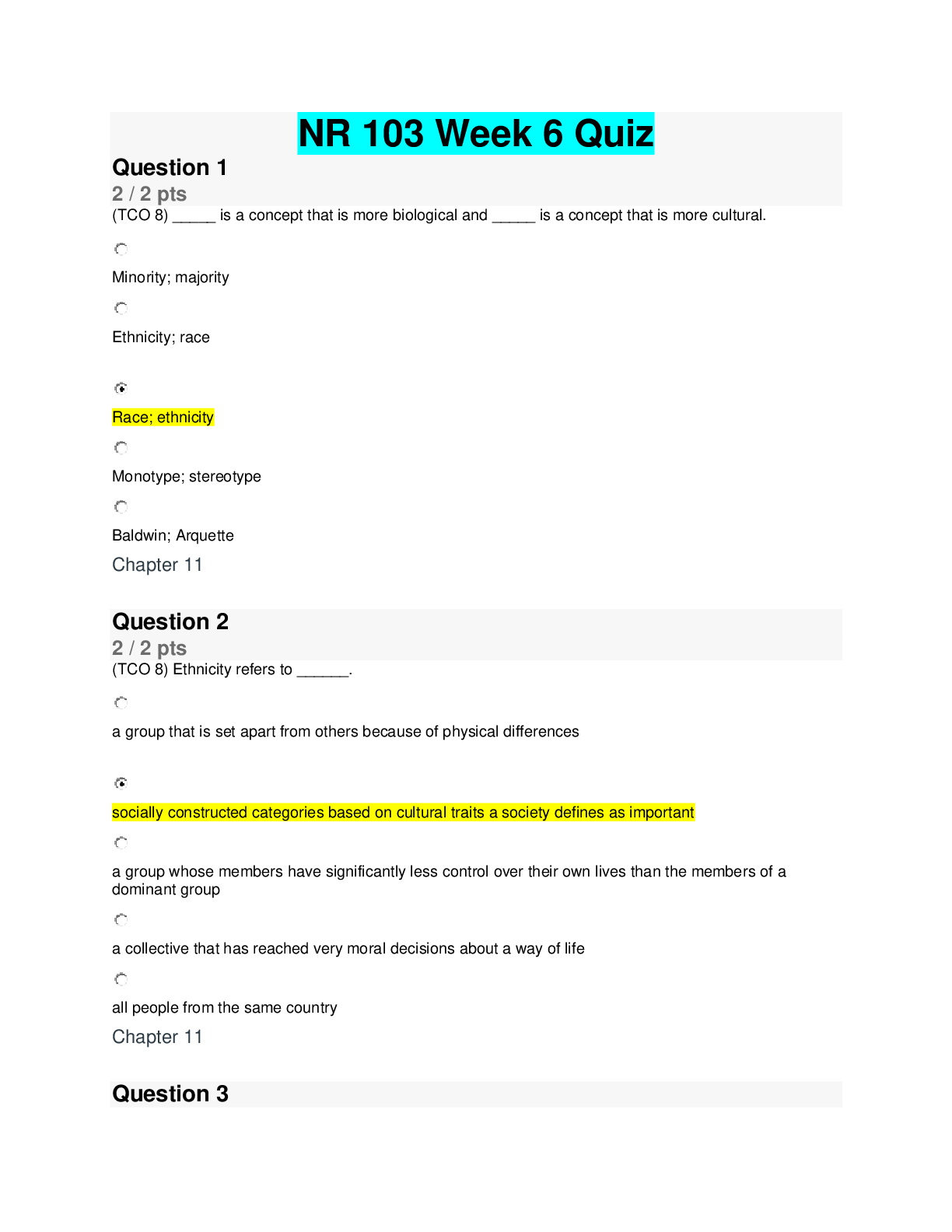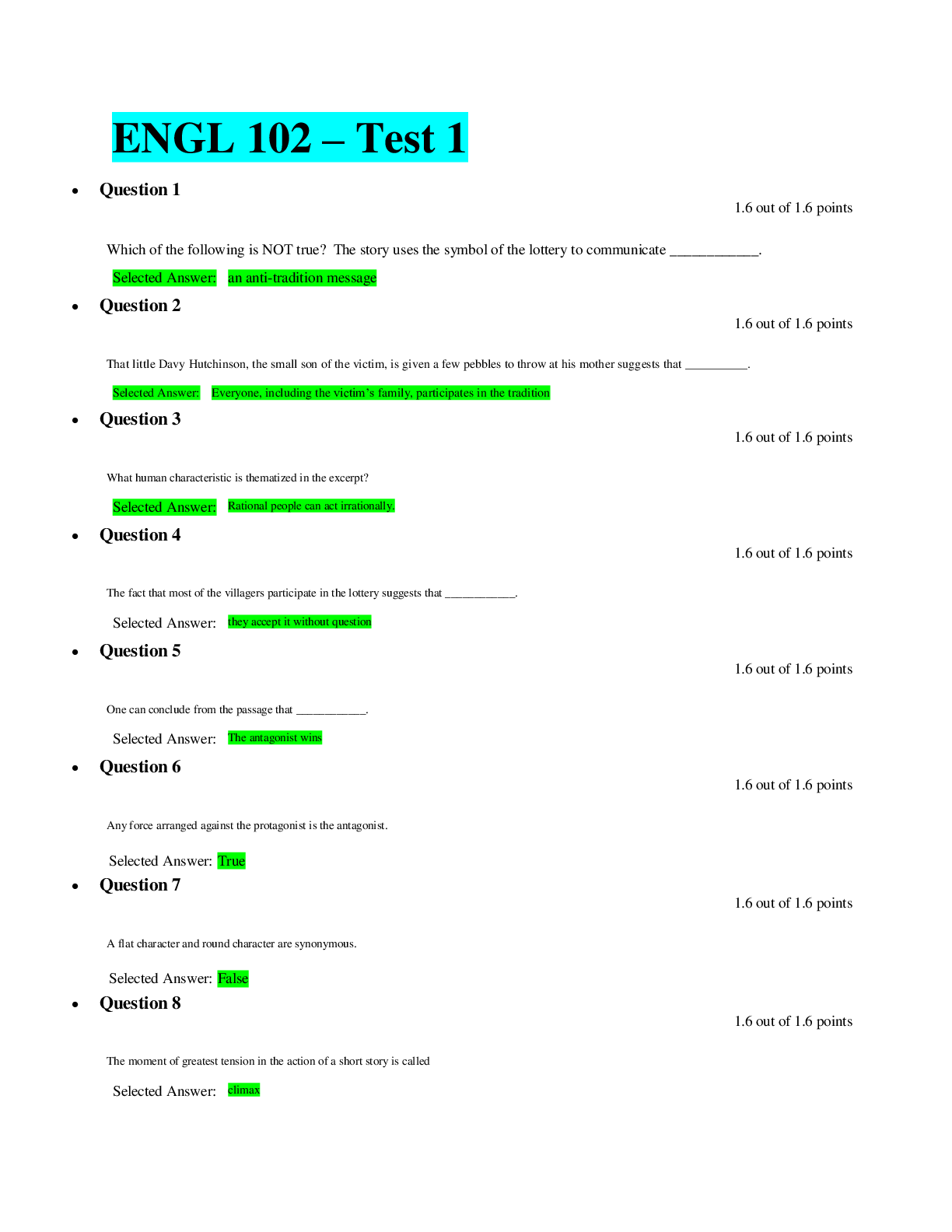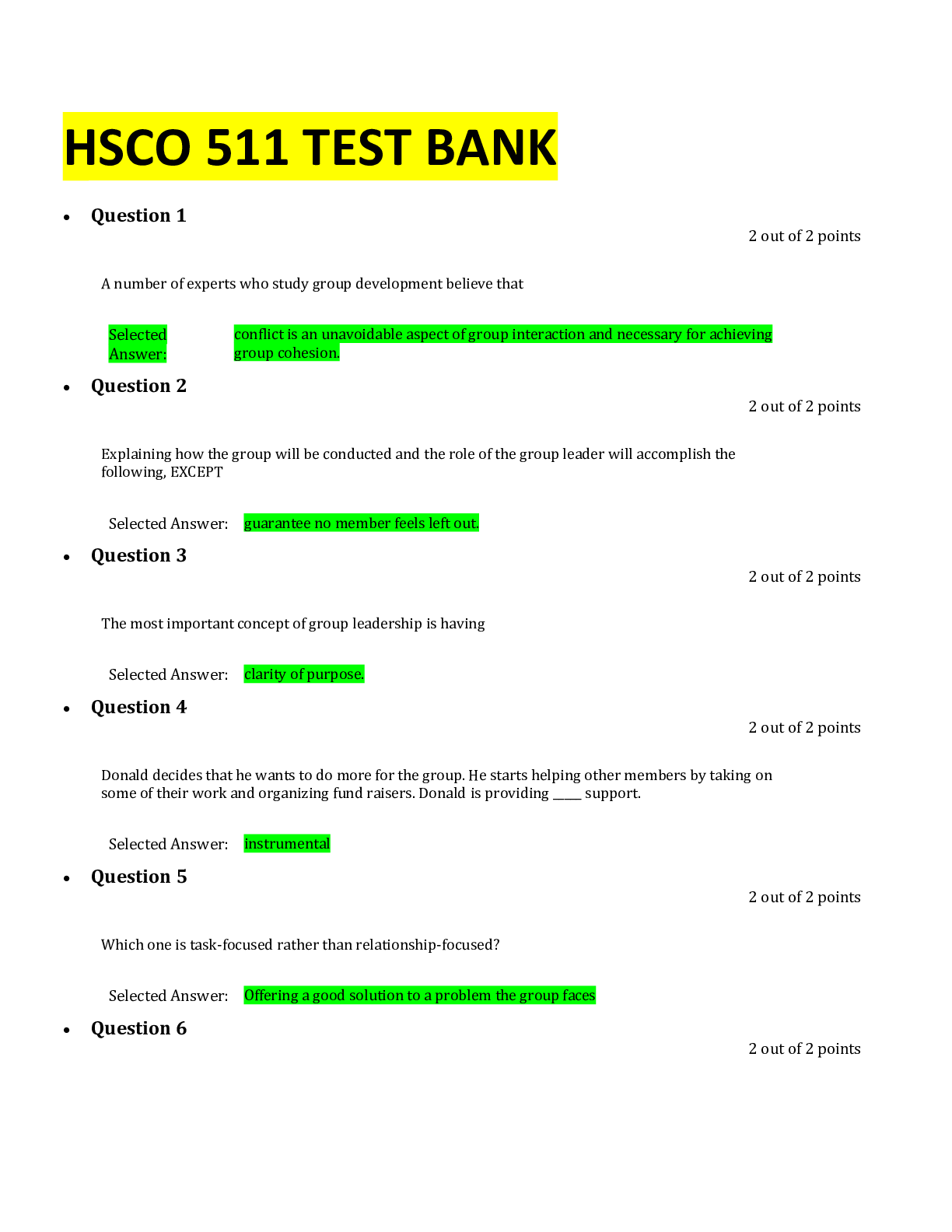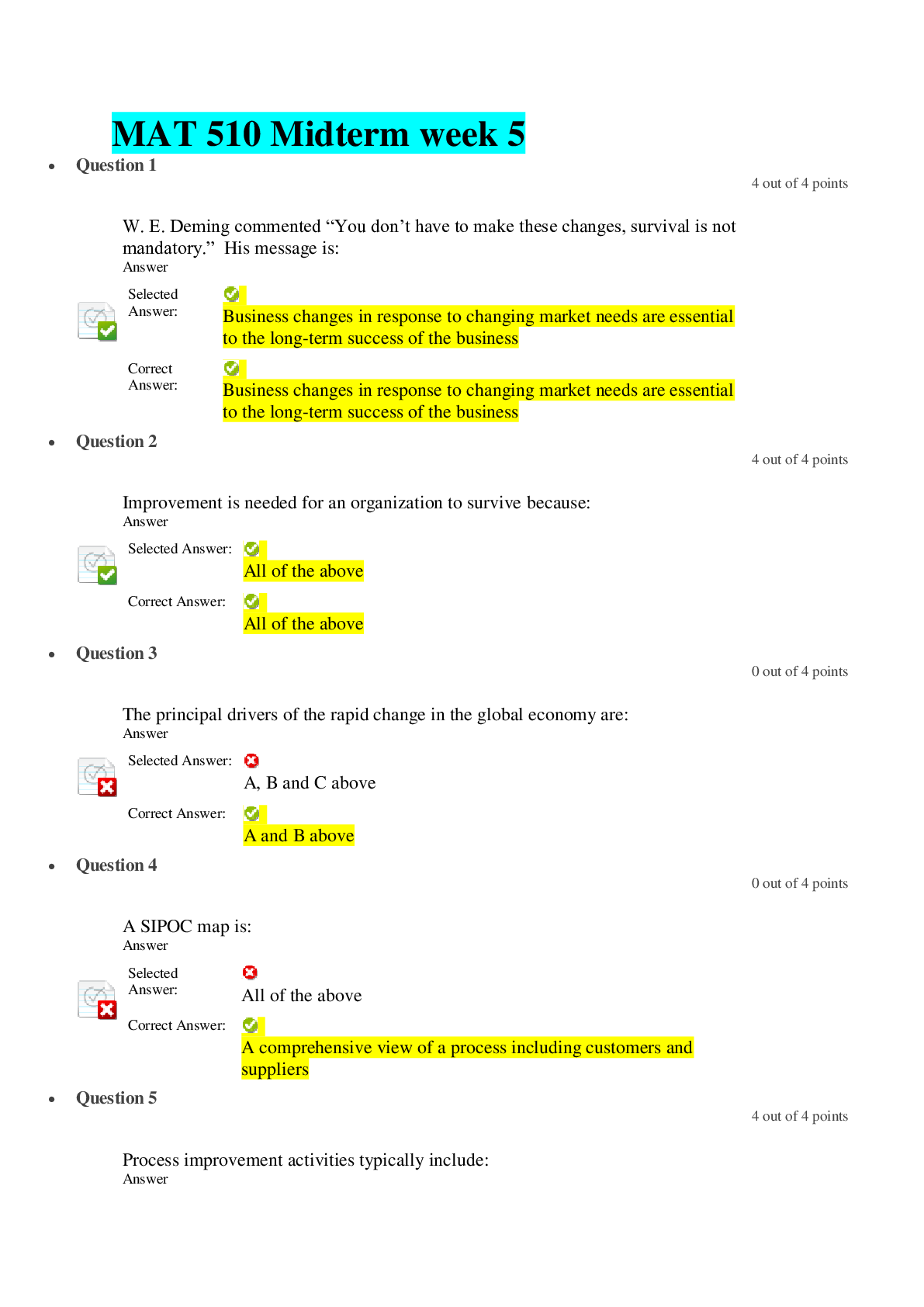*NURSING > QUESTIONS & ANSWERS > NSG4067 Gerontological week 3 quiz / NSG 4067 Gerontological Nursing week 3 quiz (2019/2020) All Ans (All)
NSG4067 Gerontological week 3 quiz / NSG 4067 Gerontological Nursing week 3 quiz (2019/2020) All Answers Correct.
Document Content and Description Below
NSG4067 Gerontological Nursing week 3 quiz, All Answers correct Question 1 An older African-American client shares that they, "Don't hear as well as they used to." Responding based on evidence-based... data, the nurse will: p.85 Question 1 options: Inquire as to whether the client has tinnitus. Assess the client for middle ear fluid accumulation. Ask whether the client has ever been diagnosed with otosclerosis. Check the client's ears for a cerumen impaction. Question 2 The major focus regarding nursing education for the older adult regarding the use of herbal supplements is the: Question 2 options: High risk of herbal overdose since the manufacturing process lacks effective controls. Likelihood that the client will substitute herbals for more expensive prescribed medications. Expense of the herbal supplements since they are seldom covered by insurance. Possibility of herbals interaction dangerously with the client's prescribed medications. Question 3 When comparing the Older American's Resources and Services (OARS) with the Katz index of ADLs, what is true? Question 3 options: The Katz index and the OARS both measure only ADL performance. The OARS is a comprehensive assessment tool that measures ability in five areas; the Katz index measures only ADL performance. The OARS is used only for older adults in the long-term care setting; the Katz index is used in all settings. The OARS is not valid for use in older adults who are cognitively impaired, whereas the Katz index is. Question 4 The nurse is recommending that a client diagnosed with moderate stage Alzheimer's disease attend a support group when he becomes defensive about not driving his automobile and the effects it will have on, "being stuck at home." Which is the priority outcome expected for this client when attending the group sessions? Question 4 options: Facilitates socialization thus minimizing the effects of social isolation. Helps with minimizing the loss as a factor in causing depression. Provides caregivers with respite while assuring the client is well attended to. Allows for the opportunity for a mental health professional to assess the client. Question 5 Which intervention is therapeutic when facilitating communication with a cognitively impaired older client? Question 5 options: Explain a task using simple, concise phrasing and one step at a time. Give instructions to a group whenever possible to provide peer support. Allow for additional time for the client to respond to questions or directions. Use non-verbal as well as verbal cues to help get your message across to the client. Speak loudly to gain and retain the client's attention. Question 6 When a client's thyroid panel shows an elevated TSH, the nurse reviews the client's medication history for a current prescription for: Question 6 options: Lithium. Heparin. Aspirin. Phenytoin (Dilantin). Question 7 The nurse is completing discharge instructions for an 88-year-old patient who is being discharged from the hospital following a myocardial infarction. He is provided with written literature on heart healthy diets, exercise, and smoking cessation. His daughter states, "I don't know why you are bothering. What difference is it going to make? He has been smoking and eating poorly for years; he isn't going to change now." This statement reflects the concept of: Question 7 options: Reality orientation. Character assessment. Negative stereotyping. Senescence. Question 8 A NANDA nursing diagnosis that could be appropriate for an older adult with a marked hearing impairment is: Question 8 options: Fear. Social Interaction Impaired. Confusion (Chronic). Risk for Injury. Self Esteem Disturbance. Question 9 The nurse is most concerned by observing when assisting with an older client's bath: Question 9 options: A persistent red lesion with a poorly defined base and an adherent yellow-white scale. A slightly raised irregular patch that is bluish black in color. An open sore that bleeds, oozes, or crusts and remains for 3 weeks or more. Rough, scaly, sandpaper-like patches that are slightly tender. Question 10 The original intent of Social Security was to: Question 10 options: Provide a hospital insurance plan. Minimize the dependency of older members on younger members of society. Provide the blind, older adult, or disabled with adequate financial support. Penalize women financially for numerous zero wage years while raising children. Question 11 Which statement by the nurse is the strongest example of ageism by professional nurses? Question 11 options: "It takes a special nurse to provide good care to the older population of clients." "It's difficult for a nurse to develop an effective relationship with an older client because of the barriers their age creates." "It is so difficult to find nurses who are truly effective geriatric nurses." "With the older population increasing so dramatically in numbers, nursing will have a difficult time meeting their needs." Question 12 Which nursing statement shows a true appreciation for an older client's willingness to tell their personal stories about "the war?" Question 12 options: "It's so nice to see them excited and engaged as they tell the stories." "It helps their memory so much to re-tell their stories." "I learn so much about a client when they share their life story with me." Page 12 of 20 Question 13 Ethnocentrism is defined as: Question 13 options: An understanding of another's cultural beliefs and practices. A conflict that occurs when an individual interacts with another whose beliefs differ from his own. Application of limited knowledge about one person with characteristics specific to another person. A belief that one's ethnic group is superior to that of another. Question 14 Which factor is the greatest barrier to an older adult living independently? Question 14 options: Deficits in vision and/or hearing resulting in safety issues. Limited finances that prevent upkeep and maintenance of a residence. Depression that occurs after the death of a spouse or significant other occurs. The manifestation of cognitive impairment resulting from dementia or Alzheimer's. Question 15 An older adult client is being seen for the first time at the outpatient geriatric clinic. As a component of the nursing admission history, the nurse inquires about the use of herbs and other supplements. The basis for this inquires is that such herbal therapy: Question 15 options: May interact with prescription medications. Are hazardous when used by older adults. Replace the need for prescription medications. Cause excessive sedation in older adults. Question 16 A 78-year-old man is being evaluated in the geriatric clinic. His daughter reports that he has been very forgetful lately, and she is concerned that he might be "senile." The advanced practice nurse administers the clock drawing test and the patient draws a distorted circular shape and places the numbers all on one side of the shape. Based on his performance, the nurse concludes that the patient: Question 16 options: Probably has Alzheimer's disease. Needs further evaluation. Probably has delirium. Needs a functional status assessment. Question 17 The nurse is reviewing the post surgical laboratory values of an older adult client. The client's Erythrocyte sedimentation rate (ESR) is 20 mm/hr. The nurse initially responds to this data by: Question 17 options: The nurse is reviewing the post surgical laboratory values of an older adult client. The client's Erythrocyte sedimentation rate (ESR) is 20 mm/hr. The nurse initially responds to this data by: Recognizing that the value is normal for older adults. Notifying the client's health care provider immediately. Requesting that the laboratory re-run the test. Question 18 It has been projected that the cultural group presenting the greatest growth rate among the older adult population will be the: Question 18 options: African-Americans. Asian/Pacific Island Americans. Native Americans. Hispanic Americans. Question 19 What is true about instruments to assess for depression in older adults? Question 19 options: Older adults tend to score inaccurately low (indicating less depression) than younger adults on the Zung Self-Rating Depression Scale. The shortened Geriatric Depression Scale does not contain a question to evaluate suicide potential. The Beck Depression Inventory is designed for gerontological patients. The Geriatric Depression Scale is administered by a health care provider in an interview with the older adult. [Show More]
Last updated: 1 year ago
Preview 1 out of 8 pages
Instant download

Buy this document to get the full access instantly
Instant Download Access after purchase
Add to cartInstant download
Reviews( 0 )
Document information
Connected school, study & course
About the document
Uploaded On
Apr 08, 2020
Number of pages
8
Written in
Additional information
This document has been written for:
Uploaded
Apr 08, 2020
Downloads
0
Views
92

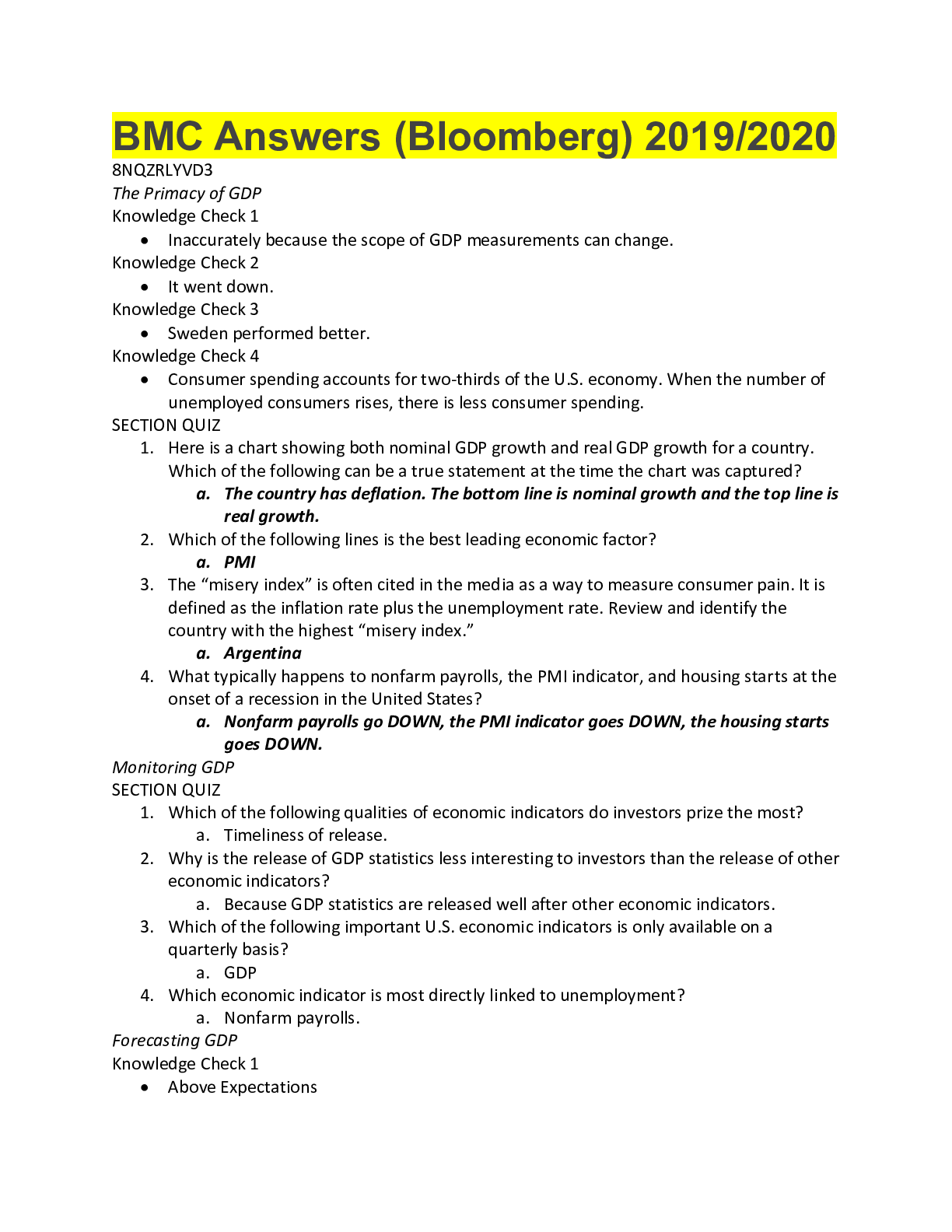
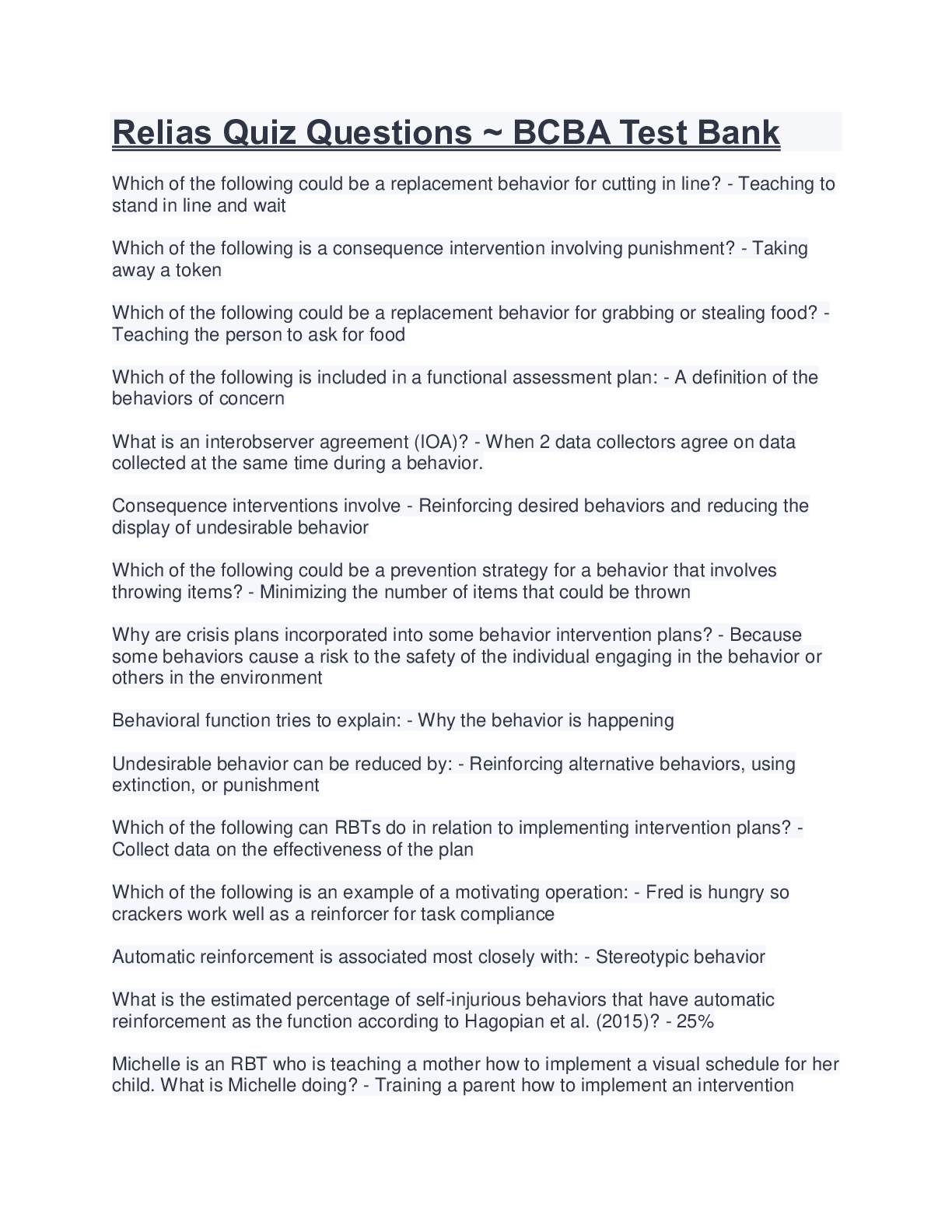
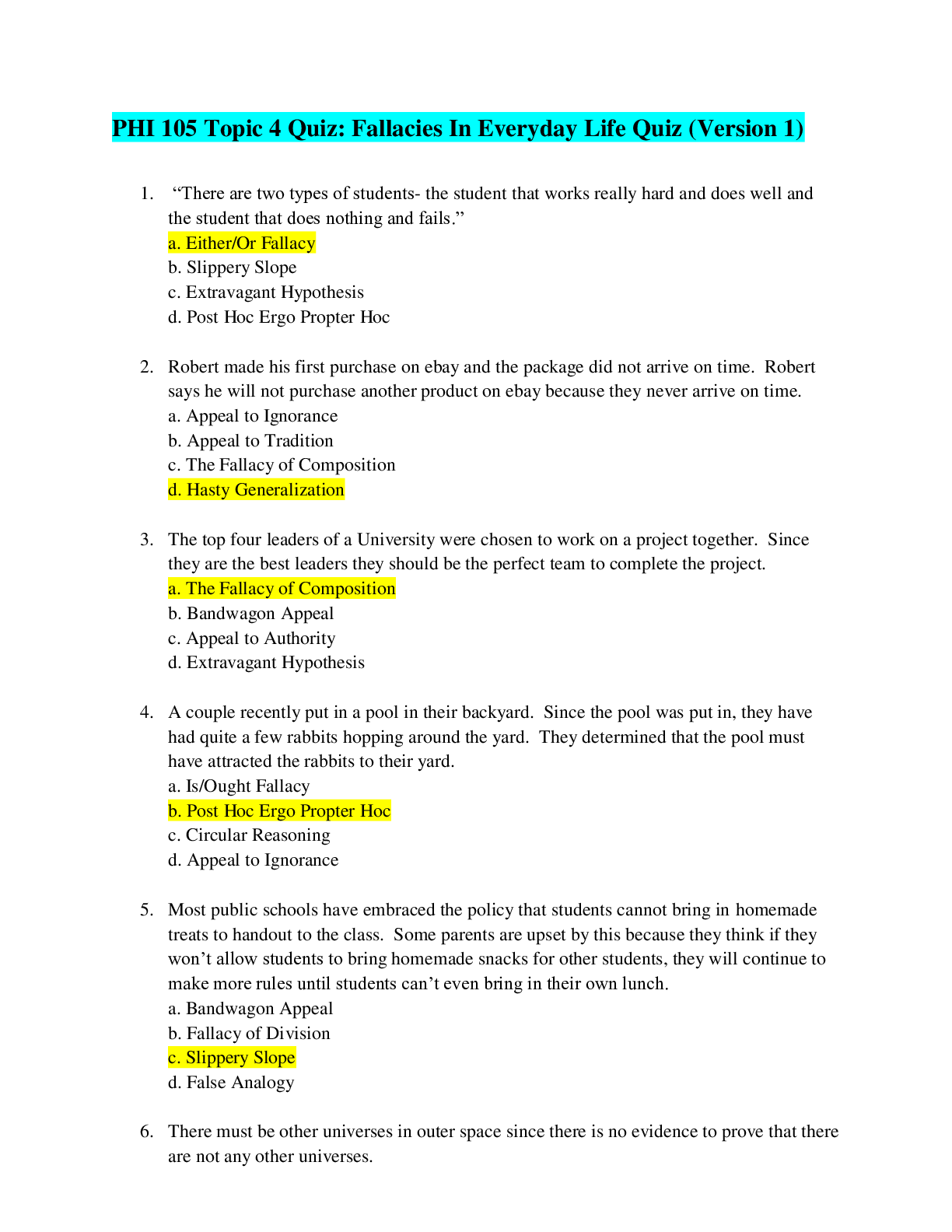

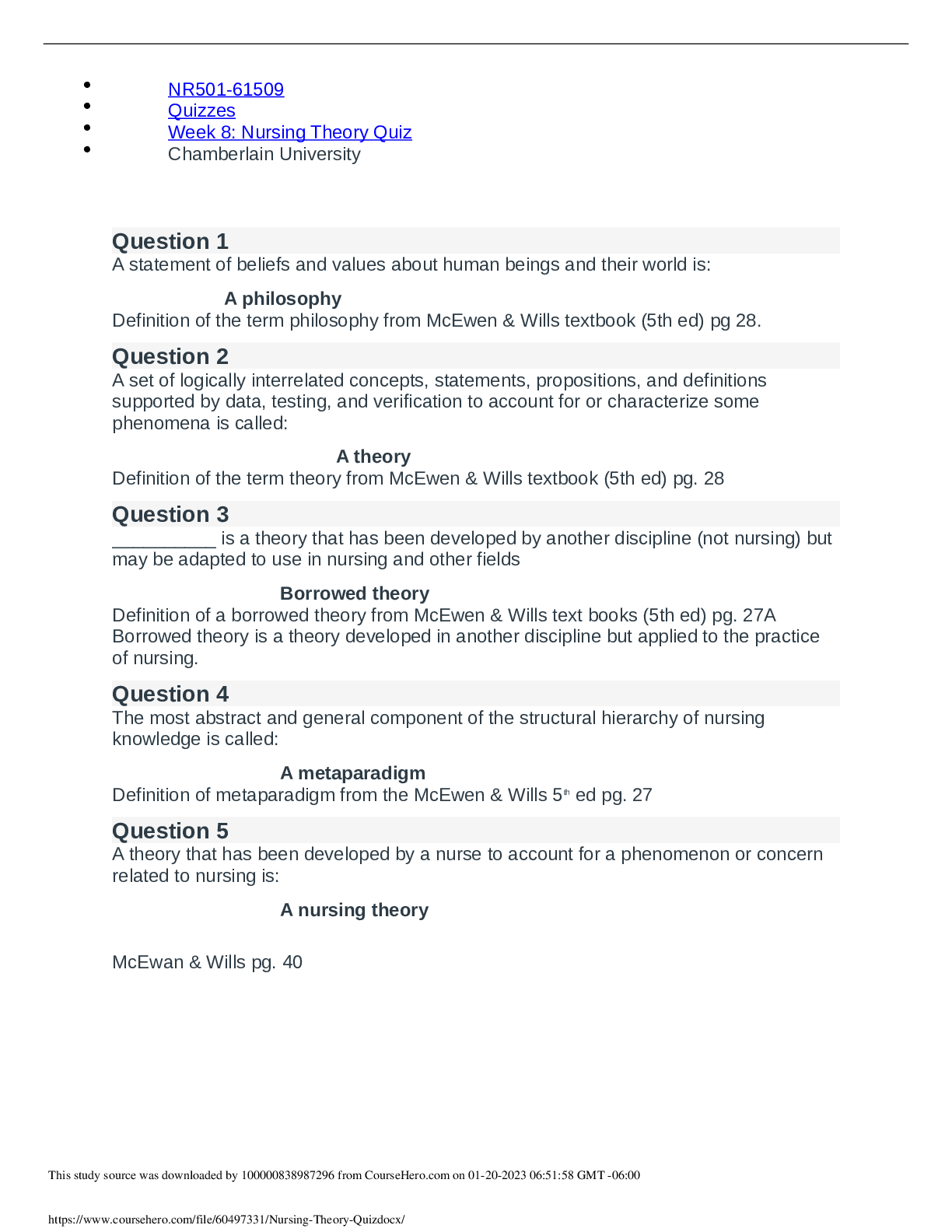
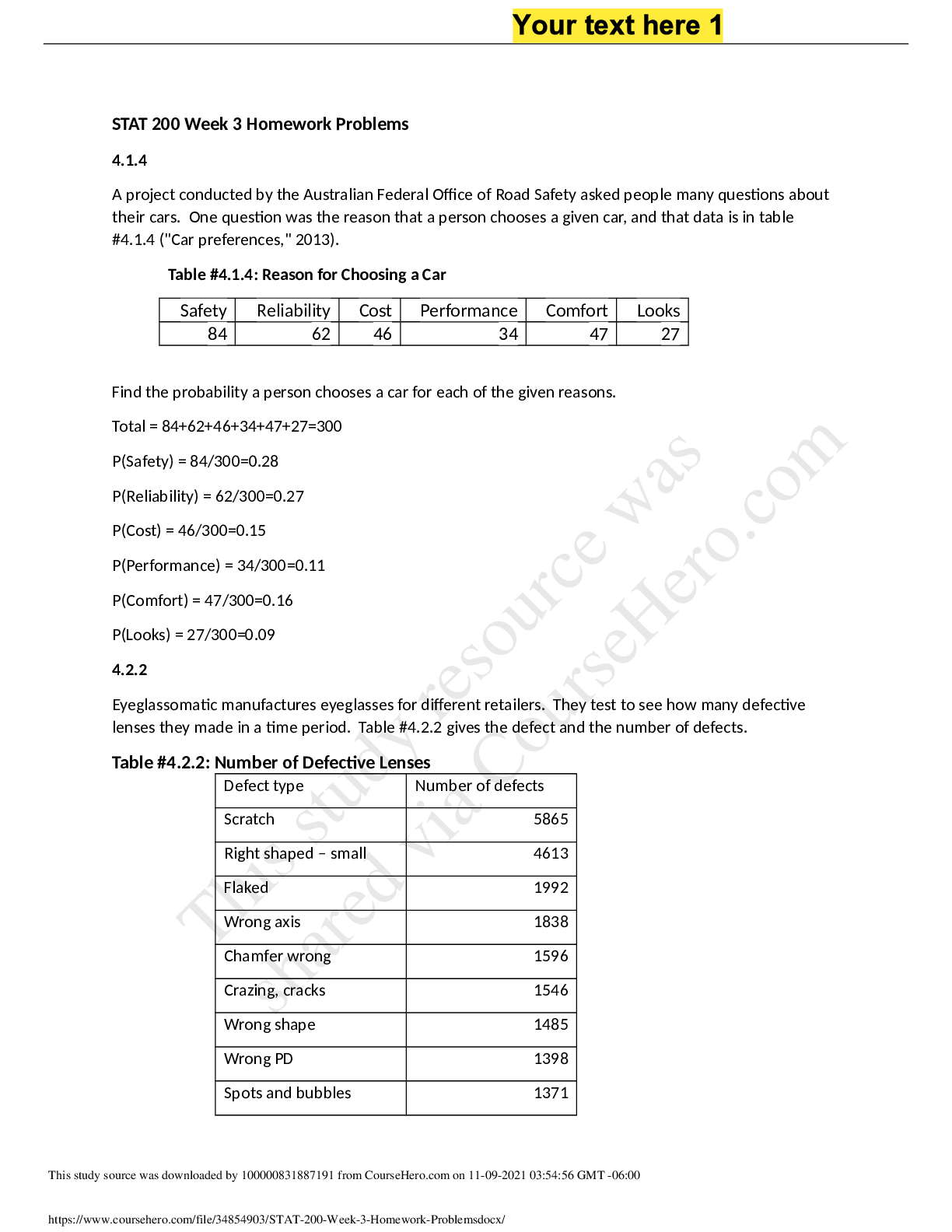
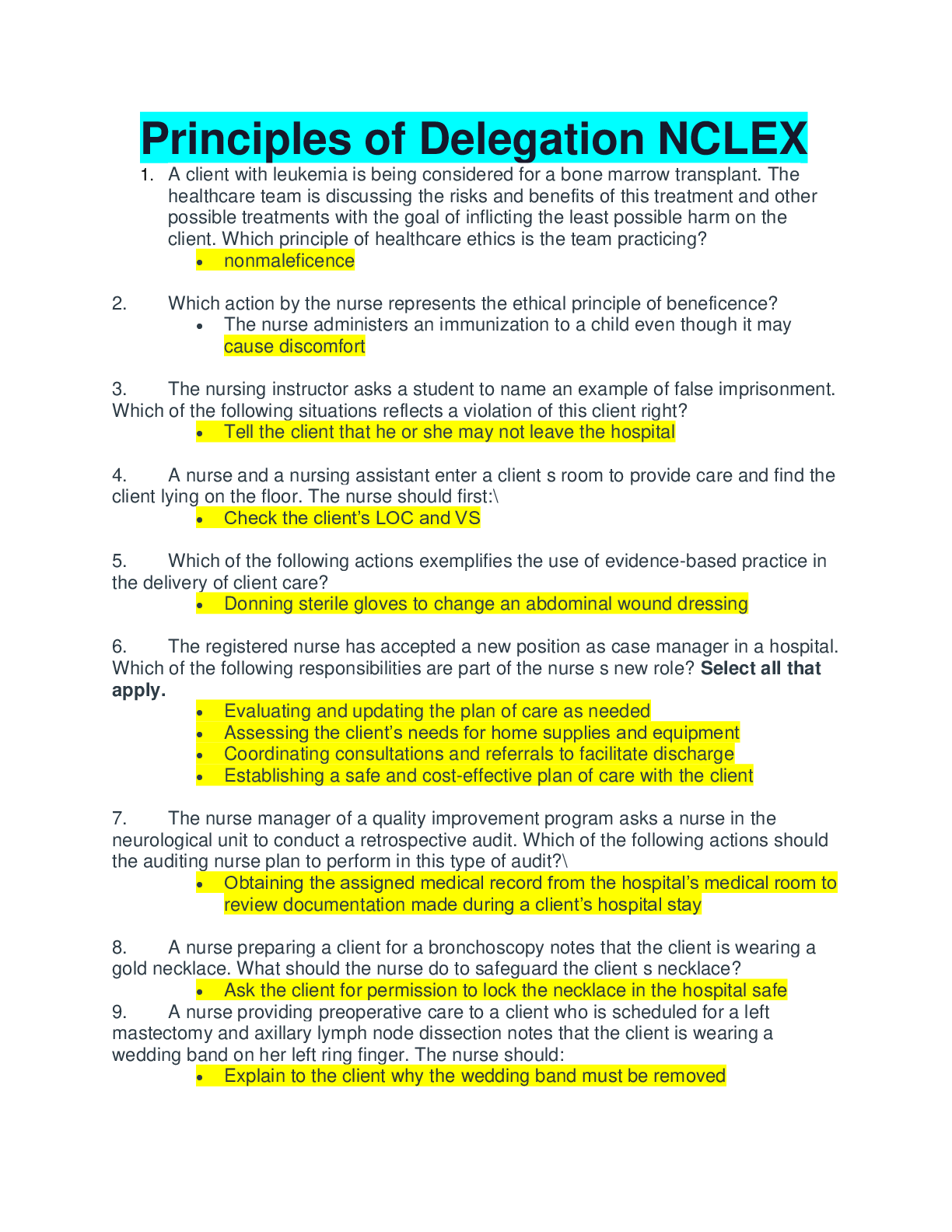
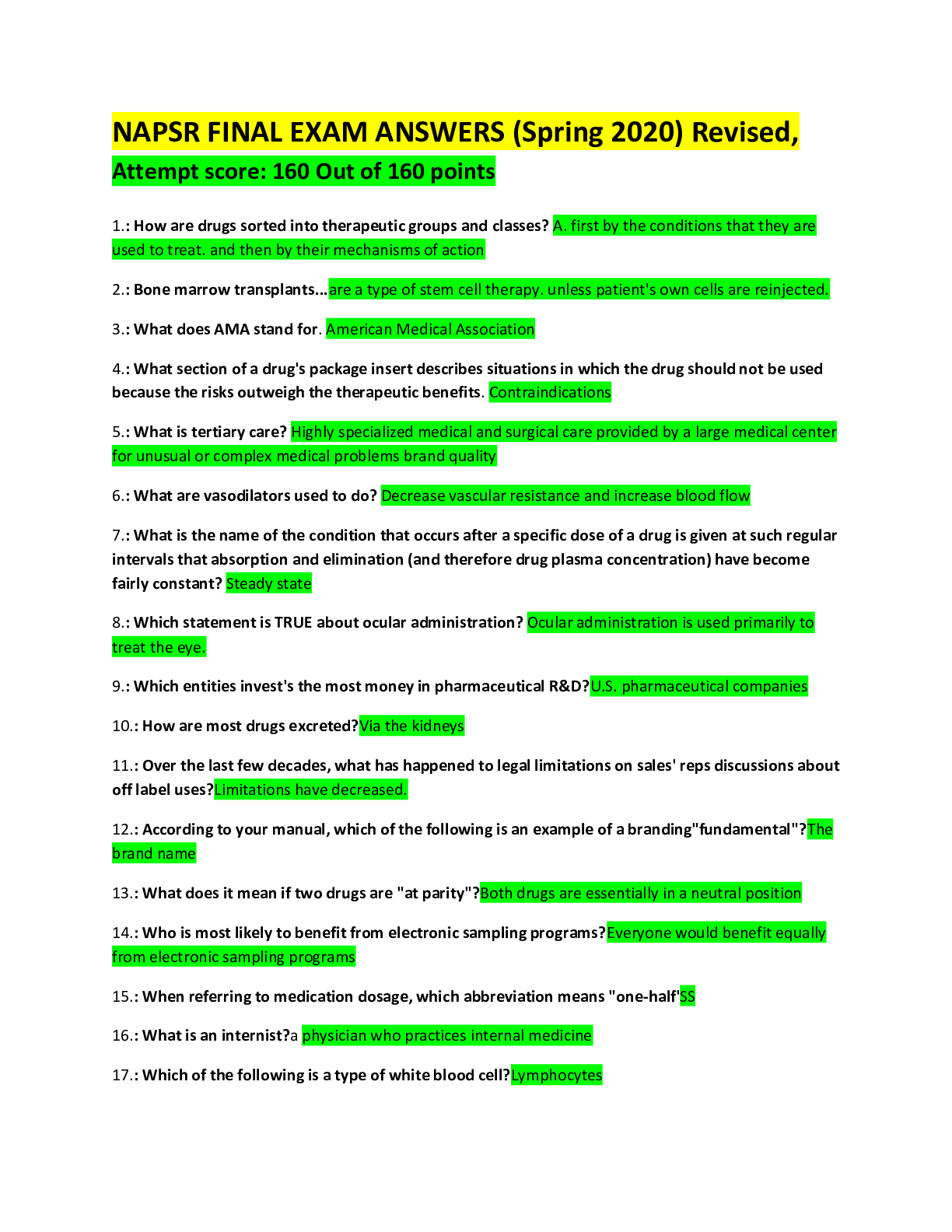
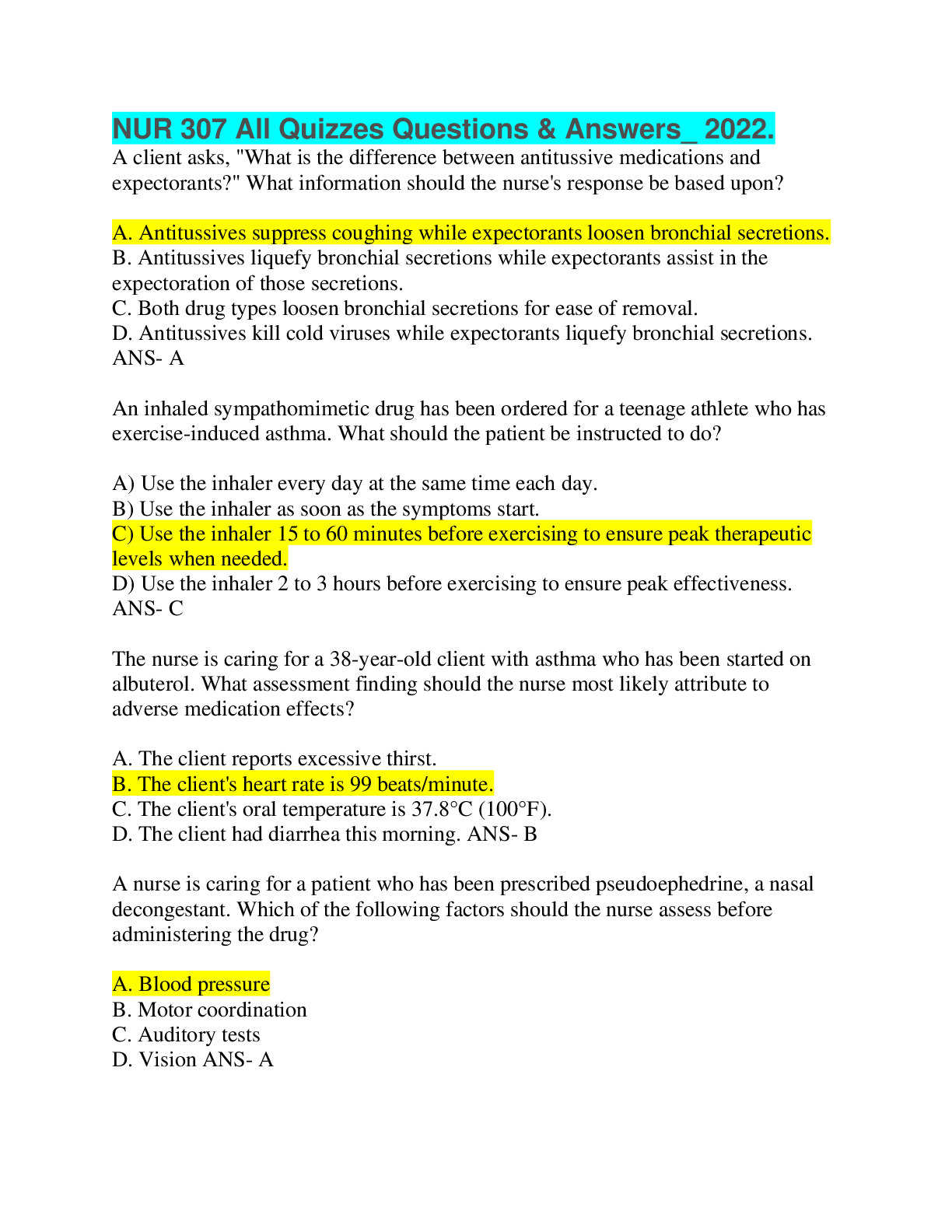
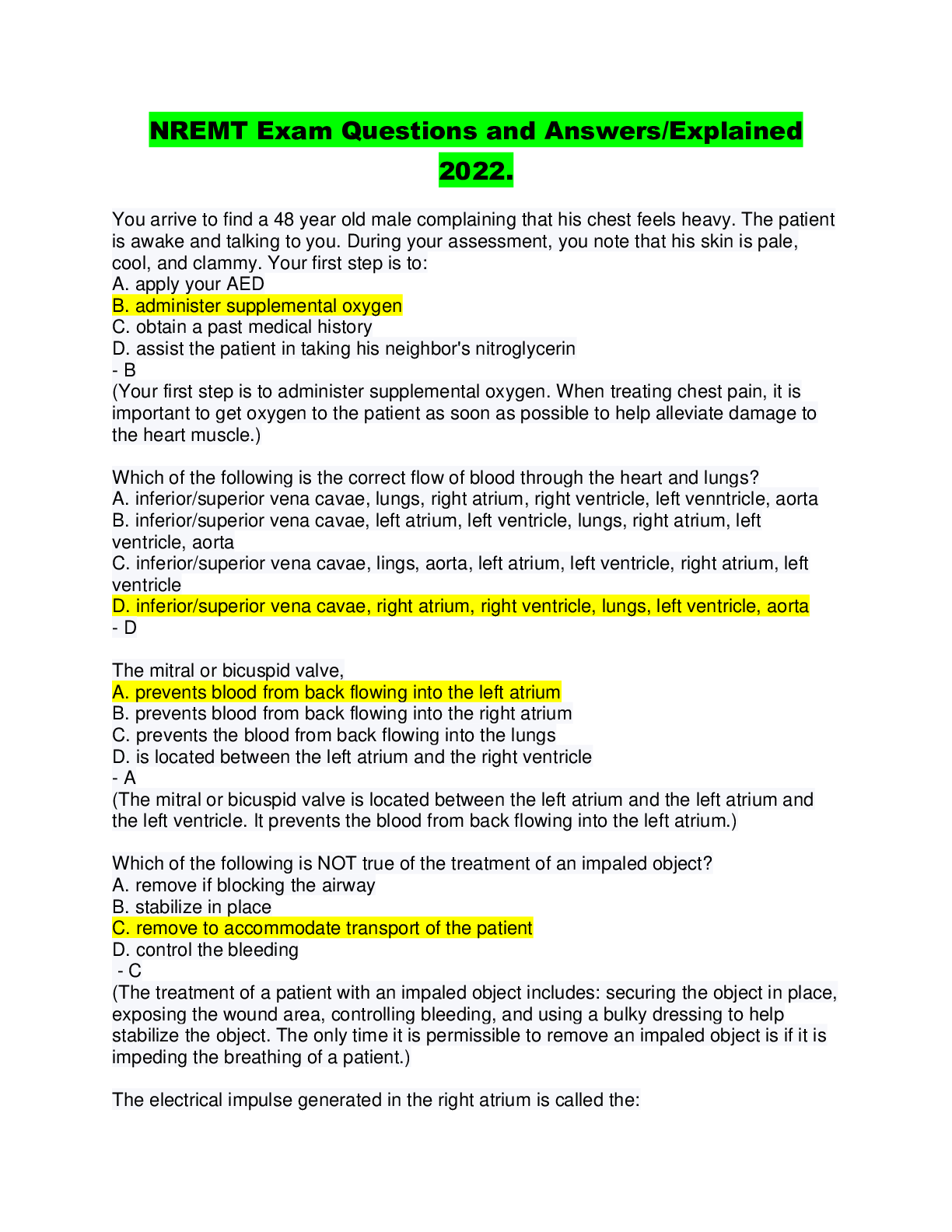
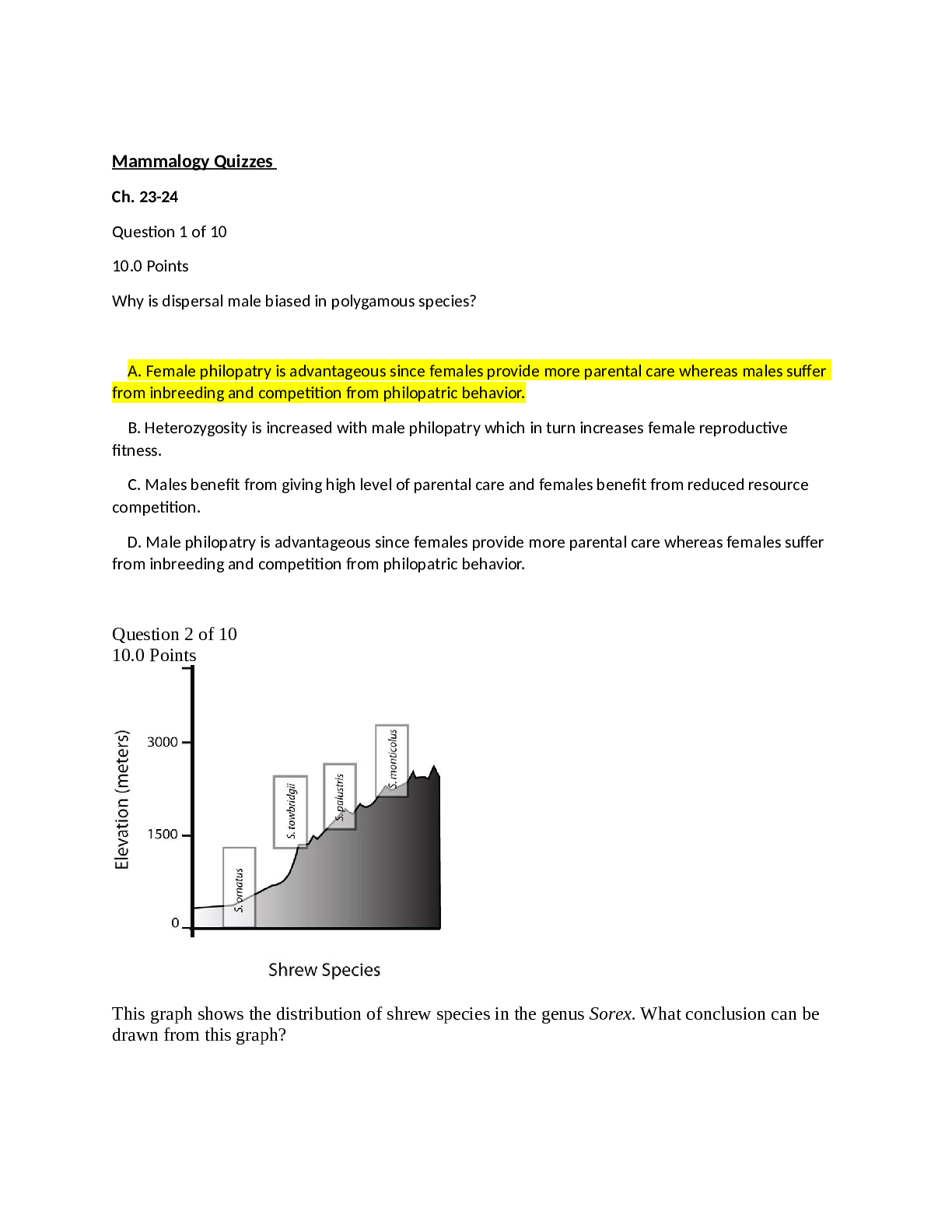
.png)
